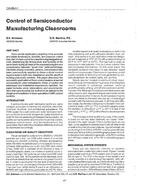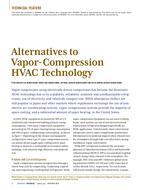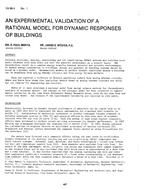To be able to design a building for a healthy indoor climate and sustainability, energy, moisture and indoor environmental simulations are needed.Accurate simulations call for comprehensive input data regarding user related parameters. Therefore, models for user related parameters areessential to establish. Both low energy use and good indoor environmental quality are important issues that must be combined and not suboptimized.It is also of interest to correlate different parameters to be able to make better conclusions from validations and measurements, developbetter and cheaper sensor techniques and get a better understanding on the occupant behavior. In this study, carbon dioxide, commercial mixed gassensor output, temperature and relative humidity, moisture supply as the difference between outdoor and indoor absolute vapor content andoccupancy levels with the help of the airflow were measured together with household electricity and domestic hot water. These parameters weremeasured over a year at the building level in 4 buildings in South Sweden containing 72 apartments through measurements in the exhaust air ofthe ventilation system, providing average values of the apartments. Tested relationships are presented between these parameters as well as descriptivedata on the indoor environmental quality. Since the data is monitored every 30 min, the result is time distributed, and it is possible to check fortime lag effects. The result helps the design and optimization of new as well as renovated dwellings towards the net zero energy use, providing anappropriate indoor environmental quality.
Citation: IAQ Conference: IAQ 2013: Environmental Health in Low Energy Buildings
Product Details
- Published:
- 2013
- Number of Pages:
- 8
- File Size:
- 1 file , 2.7 MB
- Product Code(s):
- D-2013IAQConf-57


